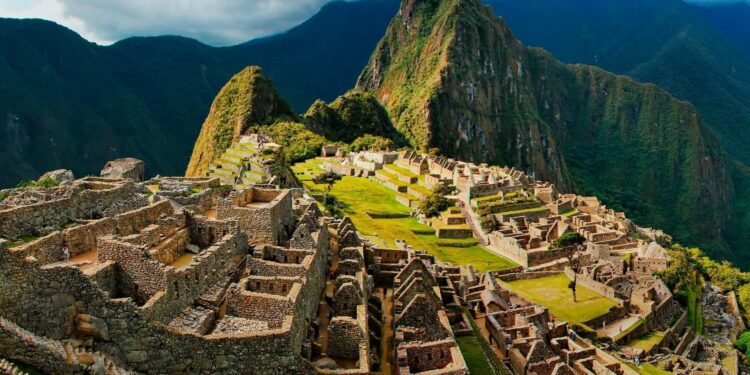In a significant legal development, Peru has enacted an amnesty law aimed at military personnel and police officers involved in operations against the Shining Path insurgency, a movement that wreaked havoc on the country for decades. The controversial legislation, which has sparked widespread debate among human rights advocates and political leaders, seeks to address grievances stemming from the violent conflict that claimed approximately 69,000 lives between the early 1980s and the late 1990s. While supporters argue that the amnesty is a necessary step towards reconciliation and healing, critics warn it could undermine justice for victims of human rights abuses. As Peru grapples with its tumultuous past, the implications of this amnesty will resonate deeply within the nation and beyond, inviting scrutiny from both domestic and international observers.
Peru’s Controversial Amnesty: A Closer Look at Military and Police Roles in the Shining Path Conflict
The recent enactment of an amnesty for military and police personnel involved in the fight against the Shining Path insurgency has reignited debates surrounding accountability, justice, and human rights in Peru. Supporters of the amnesty argue that it is a necessary step towards healing a nation still reeling from years of violence, while critics warn it could undermine the rule of law and set a dangerous precedent for future conflicts. The roles of military and police during the Shining Path conflict, which lasted from the late 1980s to the mid-1990s, remain deeply contentious, with many asserting that state forces committed serious human rights violations under the guise of combating terrorism. The amnesty raises critical questions about the balance between national reconciliation and the pursuit of justice for victims of the conflict.
As the Peruvian government moves forward with the amnesty, several key aspects warrant close examination:
- Implications for Victims: The amnesty may deny justice to those who suffered atrocities, complicating the healing process for victims and their families.
- Military and Police Accountability: While the amnesty appears to shield personnel from prosecution, it raises concerns about evading accountability for any misdeeds during the conflict.
- Historical Narratives: How the events of this dark period are remembered and taught in schools may shift, impacting future generations’ understanding of justice and governance.
| Aspect | Proponents’ View | Critics’ View |
|---|---|---|
| National Healing | Encourages reconciliation and unity | Risk of ignoring victims’ rights |
| Legal Precedent | Avoids endless legal battles | Undermines rule of law |
| Public Perception | Restores trust in military and police | Fosters skepticism and anger towards authorities |
Legal and Humanitarian Implications of the Amnesty Law: Balancing Justice and National Security
The recent enactment of an amnesty law in Peru has reignited a contentious debate surrounding the legal and humanitarian implications of providing immunity to military personnel and police involved in the Shining Path insurgency. Advocates argue that the legislation is essential for achieving national reconciliation and ensuring stability in a country still grappling with the aftermath of decades of internal conflict. Yet, critics voice concerns about the potential erosion of accountability, emphasizing that granting amnesty may shield perpetrators of human rights violations from facing justice. This scenario poses a complex challenge—balancing the need for security against the imperative of achieving justice for victims and their families.
The repercussions of this law extend beyond immediate political ramifications. The broader implications for human rights are profound, as the law could set a precedent for future governance. Key considerations include:
- Victim’s Rights: Ensuring that victims of violence receive acknowledgment and reparations.
- Legal Precedents: Establishing future judicial approaches to conflict-related crimes.
- International Reactions: Analyzing how global human rights organizations might respond to Peru’s decisions.
In light of these issues, it becomes crucial to examine the potential long-term effects of the amnesty law on Peruvian society. The government faces the challenge of creating effective frameworks that not only uphold national security but also promote justice and reconciliation. The following table outlines possible impacts of the law on key societal sectors:
| Sector | Potential Impact |
|---|---|
| Legal System | Weakened accountability for abuses |
| Human Rights | Concerns over victim justice |
| Public Trust | Possible erosion due to perceived impunity |
| International Relations | Strain with human rights advocates |
Recommendations for Future Policy: Ensuring Accountability and Preventing Impunity in Peru’s Security Forces
The recent amnesty for military personnel and police involved in the Shining Path insurgency raises significant concerns about accountability within Peru’s security forces. Moving forward, it is imperative for policymakers to prioritize the establishment of robust mechanisms aimed at ensuring transparency and justice. Comprehensive reforms should be implemented to strengthen oversight institutions and promote a culture of responsibility among law enforcement. This includes:
- Establishing independent oversight bodies to investigate allegations of misconduct.
- Enhancing training programs focused on human rights and ethical standards for all security personnel.
- Implementing whistleblower protections to encourage reporting of abuses without fear of retaliation.
Furthermore, fostering a collaborative relationship between civil society organizations and the government can serve as a critical step towards rebuilding public trust. Transparency initiatives that involve communities in dialogue about security practices can mitigate the risk of human rights violations while empowering citizens to hold authorities accountable. Such initiatives could include:
- Regular public forums to discuss security policies and gather community feedback.
- Online platforms for reporting and tracking complaints against security forces.
- Joint training sessions between security forces and community members to strengthen understanding and cooperation.
Key Takeaways
In conclusion, the enactment of amnesty for military personnel and police involved in the Shining Path insurgency marks a significant milestone in Peru’s ongoing efforts to reconcile its turbulent past. As the government seeks to address longstanding grievances stemming from years of violence, this policy raises crucial questions about accountability, justice, and healing for all affected communities. Critics argue that such measures may undermine the rule of law and the pursuit of justice for victims, while proponents hope it will foster a climate of stability and peace. As Peru navigates the complexities of this decision, the broader implications for society and governance remain to be seen. The situation continues to evolve, and the impact of this amnesty will undoubtedly shape the nation’s narrative for years to come.














